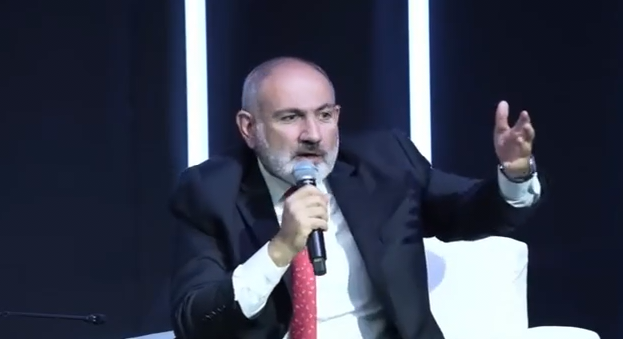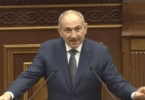It is significant when a prime minister, often considered the top state diplomat, playing a crucial role in representing the country’s interests, disparaging his people and the concept of the modern nation-state. Armenia’s Prime Minister Nikol Pashiyan did this publicly on September 18, 2024, at the Global Armenian Summit held in Armenia’s capital, Yerevan. Not only were his statement made in front of a pan-Armenian audience, but it was heard by diplomats worldwide and Armenia’s enemies, the latter prefer Armenia and Armenians cease to exist. Watch the video clip in Armenian or read parts of the English translation. Pashinyan most likely further damaged his negotiating options, especially when deliberating with Azerbaijan and Turkey. In the modern nation-state, patriotism is often tied to civic duty, emphasizing shared values, laws, and institutions, and to some extent, is an extension of the extended family. It appears Pashinyan confused a patriot with a nationalist, the latter usually being more aggressive.
There is an ideological current in some parts of the current Armenian leadership, developed in the late Soviet period, having as its basis the concepts of brotherhood of peoples and a “defense based on no defense” – a direct quote from Armenia’s first president, Levon Ter-Petrosyan, as if not having a strong army makes one appear non-threatening and will deter being attacked. Anybody who endured elementary schoolyard dynamics knows better!
Pashinyan deprecates Armenia and its people by equating national identity, cultural significance, and even individual achievement with crudely cherry-picked aspects of patriotism that might offend Armenia’s existential enemies, such as Azerbaijan and Turkey. He did so in front of a pan-Armenian audience, the vast majority of which is comprised of diasporan Armenians – the one Armenian national resource that Armenia pays lip service, neglects, and Armenia’s enemies have demanded Armenia distance itself from. Pashinyan paid homage to Armenia’s enemies at the expense of those he claimed to embrace.
Patriotism is more than waving flags, and toasting a nation’s glorious past, such as when Italians deign to recognize the Roman Empire. The more important aspects of patriotism are demanding social justice, government accountability, and transparency. Patriotism is often characterized by a deep sense of attachment and commitment to one’s accumulated culture and identity, including civil engagement to the point of willingness to defend a country and all it represents. Pashinyan would have us believe that patriotism is nothing more than chauvinism and jingoism and forms the basis for all the tragedy that has befallen Armenians. Pashinyan makes such denigrating remarks as a necessary part of being allowed to stay in power by Armenia’s existential enemies! One should question Pashiyan’s patriotism since it was more important for him to accommodate the demands of Armenia’s enemies than those, who in a sense of patriotism, attend a pan-Armenian summit. A Pashinyan patriot would start the Armenian historical clock at the dissolution of the Soviet Union; anything before then might as well be the Jurassic era. During a Q/A, in his own words, a Pashinyan patriot was brainwashed by provocative Russian (meaning Soviet) history books. Yet, most Armenian history books were not written in Russian and published outside the Soviet Union.
In the Armenian experience that Pashinyan and his supporters wish to forget, there is an expression used by a long line of similar apologists: ‘Long Live the Sultan.’ This phrase acknowledged the authority of the Sultan in the hope that loyalty might lead to better treatment. Daring not to be a Pashinyan patriot and examining the historical record, one notices that things didn’t turn out well.
Yerevan, Armenia
Author: David Davidian – Lecturer at the American University of Armenia. He has spent over a decade in technical intelligence analysis at major high technology firms. He resides in Yerevan, Armenia



